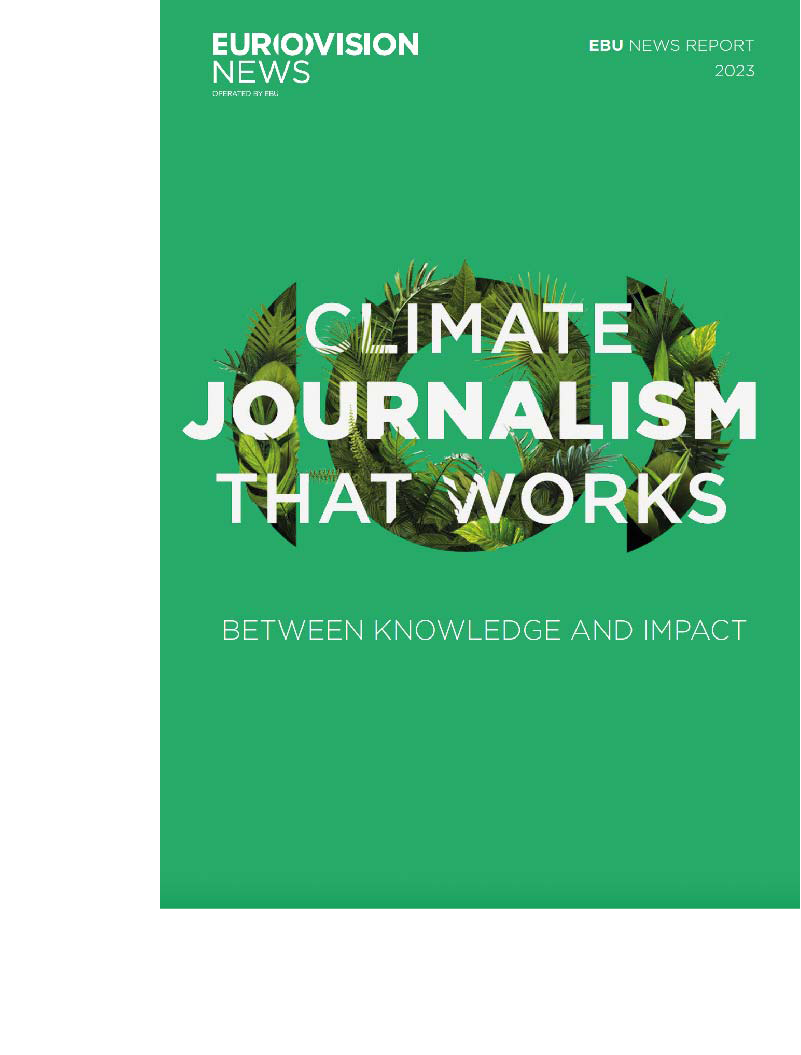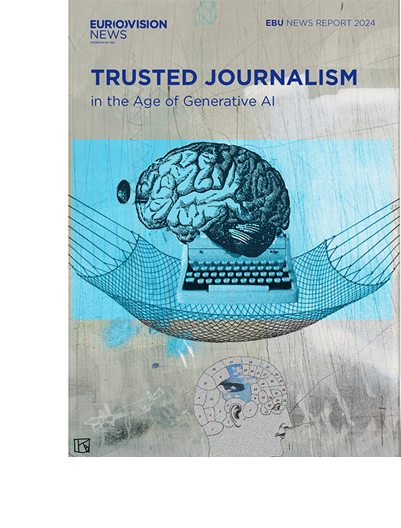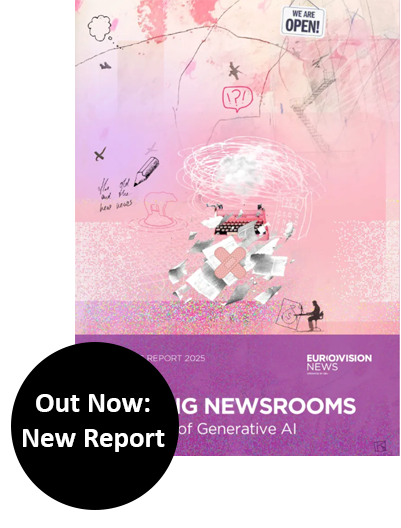Supposedly, the days are over when newsrooms resembled macho hives, war reporters were the cool guys with armoured souls and journalists could only guess a colleague’s burnout by the length of a sick leave. At least that’s how Phil Chetwynd, Global News Director at the AFP news agency, sees it. While 10 to 15 years ago newsrooms were dominated by a culture of “don’t ask, don’t tell”, since then not only has the discussion about mental health in the workplace reached a different level; appropriate structures have also been put in place, Chetwynd said on a panel at the International Journalism Festival in Perugia. This was necessary, he added, as journalists worldwide were facing unprecedented pressure.
In fact, just scrolling through the festival program provides a good overview of all the pain points: Eroding business are squeezing budgets and AI is accelerating the pace of innovation, while authoritarian politicians and their vassals are discrediting journalism, threatening journalists and sowing mistrust or even hostility towards the profession among the population, which is expressed both online and offline. Nevertheless, it is safe to assume that some media executives have not yet understood this with all its consequences.
In fact, business models can only be made resilient if you take care of those who are supposed to do so. And for all the reasons mentioned, the media industry has lost its appeal. Many journalists and media managers are questioning their career choice or leaving for calmer waters if they can. And the next generations don’t even feel tempted to join. In editorial offices that operate according to the old principle “if you can’t stand the heat, get out of the kitchen”, things could soon become breezy. Starting your own business is an alternative. However, it is more suitable for workaholics and self-exploiters, as was made clear on one or two other panels. So even in start-ups, there is no harm in thinking about mental health at an early stage.
Journalist and consultant Hannah Storm – on stage with Chetwynd – has published a book on the subject in 2024. “Mental Health and Wellbeing for Journalists” is based on 45 interviews with media people and trauma experts from all over the world. Key is to create safe spaces for conversations about the topic, said Storm. And anyone who thinks of post-traumatic stress disorder primarily in terms of war correspondents is underestimating the extent of the issue. For example, those who view disturbing footage day in, day out may be more affected than those who work in the middle of the action, said Storm. Vicarious trauma is the technical term for this. Psychologist Sian Williams has developed some recommendations for newsrooms on how to deal with this.
Such guidelines should also be of interest to local editors, as colleagues who frequently report from accident scenes or are confronted with gruesome details when covering the courts generally receive less attention than those who are sent to crisis areas. And fact-checkers are particularly threatened online – to an extent, as Chetwynd reports, that they no longer sign their texts with their names at AFP. The non-profit company The Self Investigation has put together a toolkit on mental health specifically for this group.
For some it’s not the news that causes burnout, but the accelerated pace in newsrooms coupled with economic pressure and concerns that AI could make the job redundant – all this on top of the normal madness of family management that keeps many colleagues busy in key career years. And this is not only true in cultures where self-fulfilment and leisure time play a major role. At a change management workshop for a media company in Malaysia – I led the seminar – participants brought up work-life balance and mental health as top challenges for the industry.
Emma Thomasson, now a consultant and previously a bureau chief and senior correspondent at Reuters, addressed the topic proactively at the news agency and met with such a positive response that she set up a corresponding internal program. Today, she is involved in the journalist helpline of the Netzwerk Recherche, which offers help to all those who feel that the stress of their job is getting too much for them.
But managers are not doing their job if they leave such offers solely to external bodies and the initiative of those potentially affected. It is important to create a culture in which employees can talk about such experiences without fear, said Chetwynd. This includes managers also showing themselves to be vulnerable. This challenge must be taken up by all those in leadership positions. At AFP, with its 150 offices around the world, that’s a lot of people, but that’s the only way it works. Chetwynd: “The only barriers to a potentially unlimited amount of work are the managers.”
Experts consider two things in particular to be important to alleviate stress: good preparation and regular breaks. Not every journalist, for example, is suited for every assignment simply because of their character and personal history. And managers should address the potential risks proactively before someone takes on a task – be it a disaster assignment or moderating online comments. Adjustment helps. AFP, for example, only lets crisis reporters go to the front lines once they have become familiar with the environment and culture in less exposed roles. And after a few weeks, they must take time off to breathe. This sounds simple, but in many traditional newsrooms as well as in start-ups, it is part of the culture to quietly let workaholics do their thing if they get unloved work out of the way or increase the fame of the brand. This may work in the short term, but in the long run such negligence can be expensive – not to mention the human cost of it.
Media companies are generally well advised to think proactively about the current and desired corporate or editorial culture, put it in words and communicate it precisely to employees. Lea Korsgaard, editor-in-chief of the widely praised Danish news brand Zetland, presented clear principles on another Perugia panel. Everyone who joins the company gets an hour with her, “and then I explain the culture”, she said, adding: “If you want to create a human-centric product, you need a human-centred culture.” Any news organization who wants to play a part in the battle for talent should listen up.
This column was written for and published by Medieninsider in German (“Chefs, redet über eure Ängste!”) on 15th April 2025.



